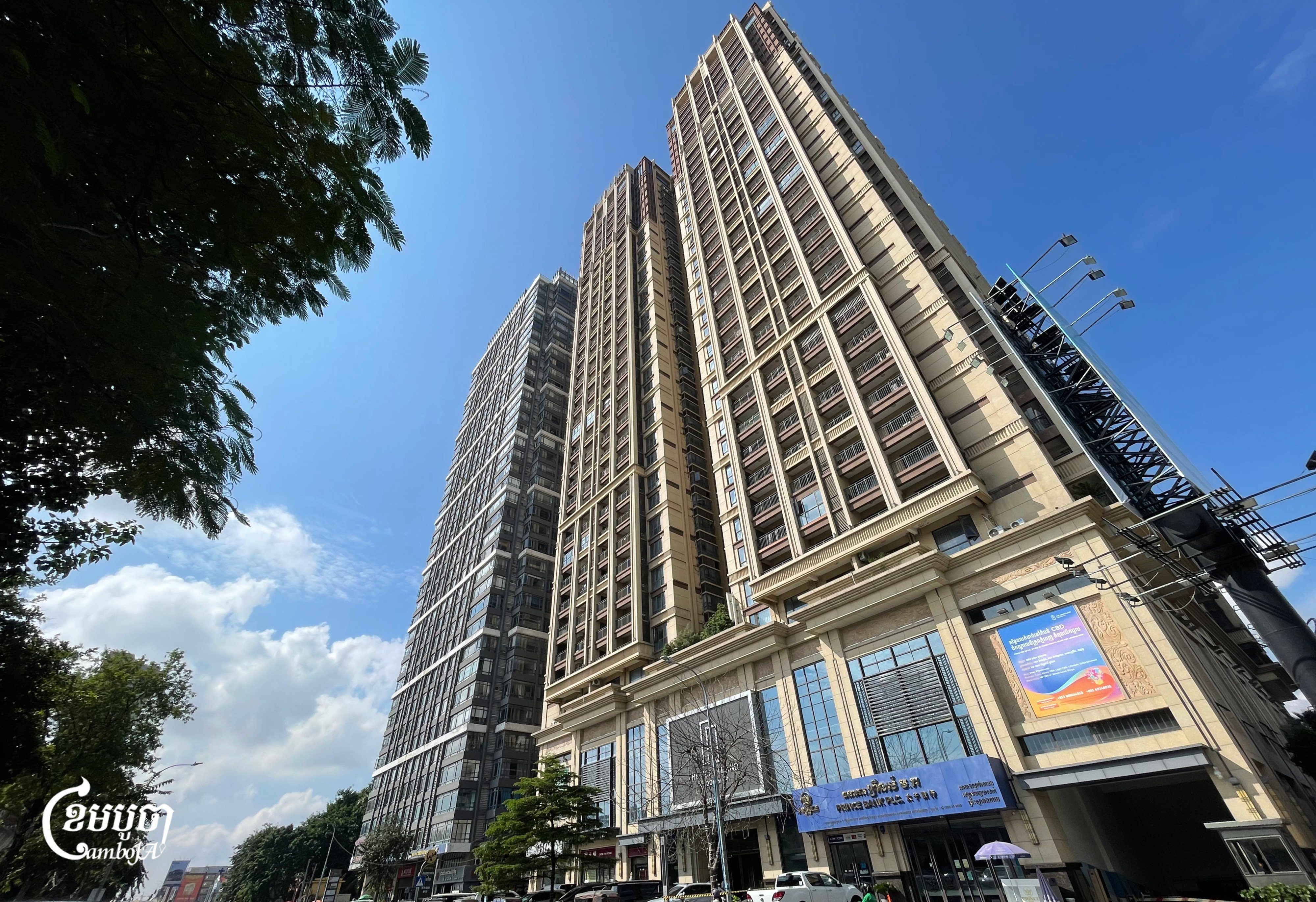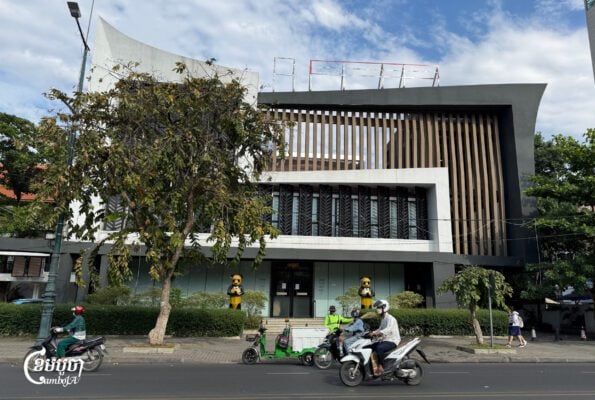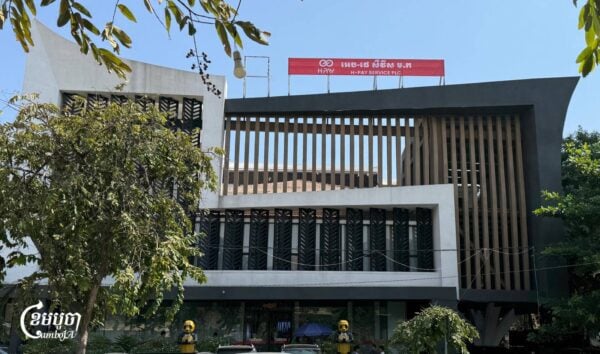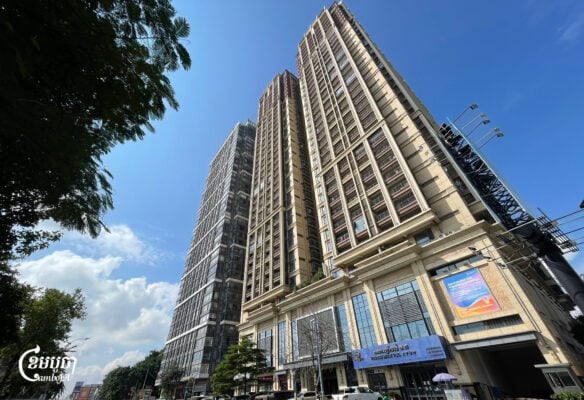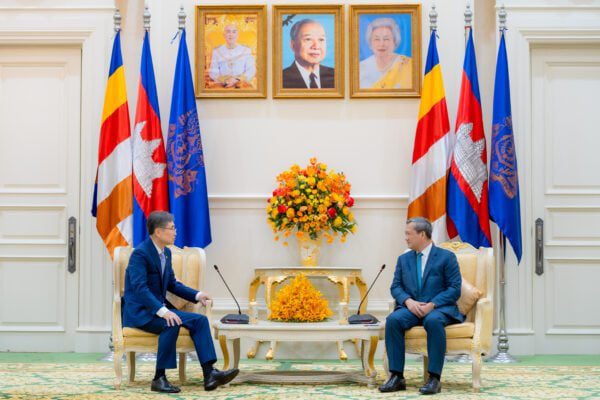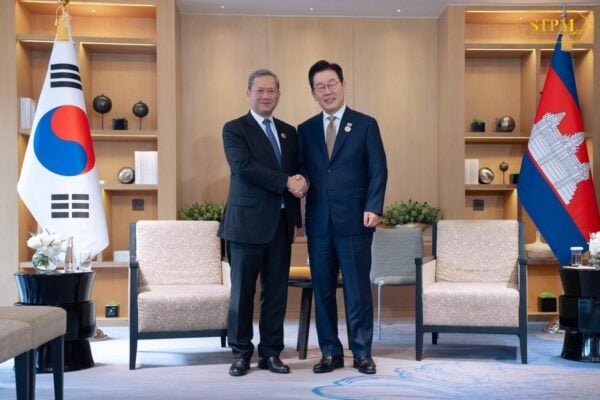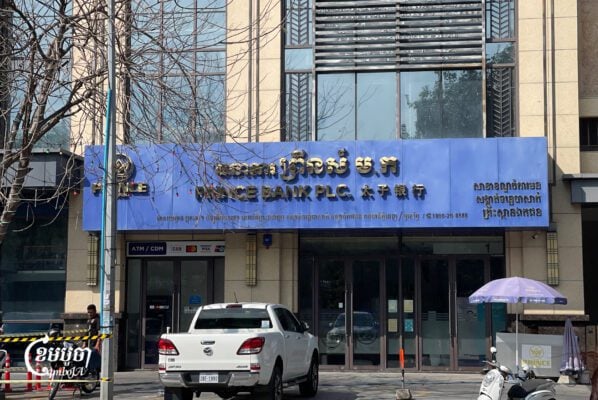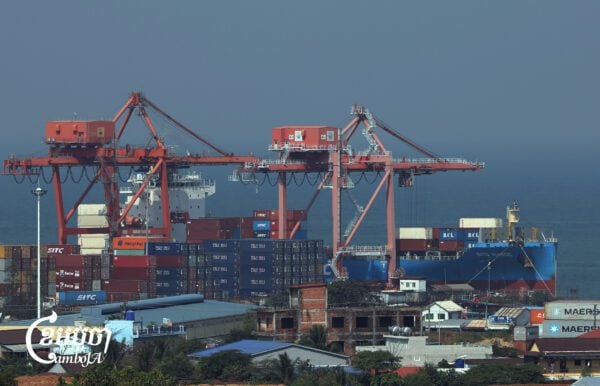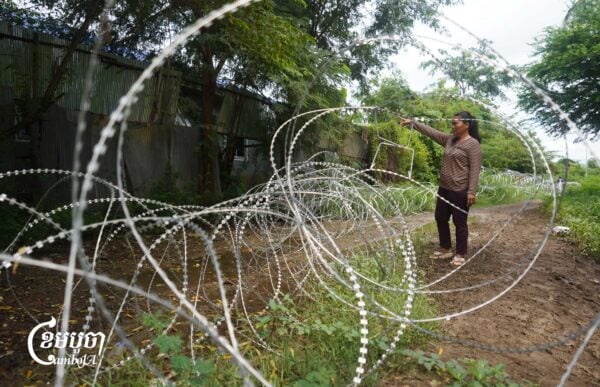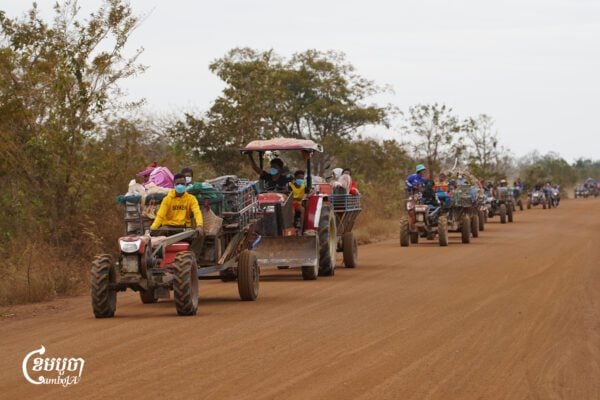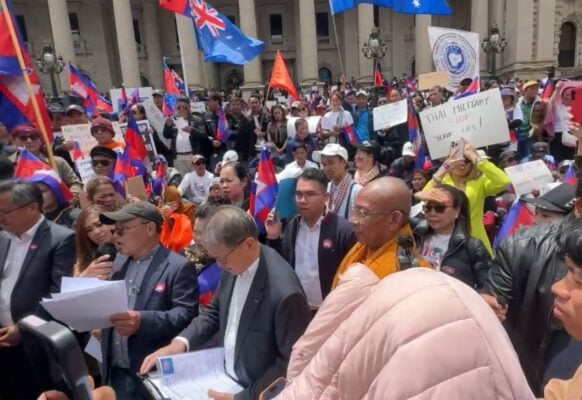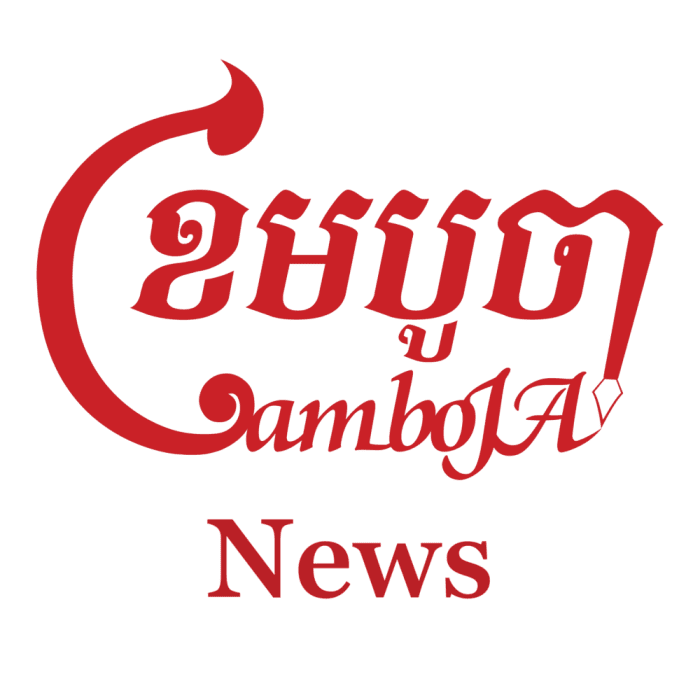The U.S. and U.K. on Tuesday blacklisted Prince Group, a Cambodian conglomerate they call a transnational criminal organization running online scam operations built on modern slavery to target Americans and other victims abroad.
The actions include sweeping sanctions on 146 entities tied to the Phnom Penh–based Prince Group, effectively cutting it off from U.S. companies, citizens and exposing others to sanctions for doing business with it.
“The rapid rise of transnational fraud has cost American citizens billions of dollars, with life savings wiped out in minutes,” said Secretary of the Treasury Scott Bessent in a statement about the designation.
Britain seized more than $172 million in property across London – including a $16 million mansion – linked to Prince Chairman Chen Zhi, whom authorities allege to be the mastermind behind some of Cambodia’s largest scam centers. U.S. prosecutors also confiscated $15 billion in Bitcoin connected to the case, and assets held by the group and its executives are now subject to forfeiture.
The coordinated moves marks the latest escalation in Washington’s push to dismantle Southeast Asia’s sprawling online scam industry, which U.S. officials say has become a national security threat after bilking Americans out of more than $10 billion last year through scams such as “pig butchering” crypto schemes.
Analysts called Tuesday’s action the most significant blow to date against a prominent regional syndicate – and a signal that more may be coming.
“With the DOJ [U.S. Department of Justice] indictment alone, frozen assets already exceed $15 billion, and that number could grow substantially,” said Jacob Sims, a visiting fellow at Harvard University’s Asia Center and an analyst on transnational crime in the region, when asked about the impact of the sanctions.
“If the U.S.–U.K. sanctions, DOJ cases and an interagency anti-scam task force all proceed in tandem, the effect is compounding rather than linear,” he added, referring to additional measures being drafted by members of U.S. Congress.
“You won’t see an overnight collapse, but you will see a steady constriction of oxygen – more frozen assets, correspondent banks backing away, real-estate deals stranded, insurance policies canceled and a growing stigma that makes it harder to recycle illicit profits into ‘respectable’ assets,” he said.
The steady constriction Sims mentioned has been on display over the past month in a string of U.S. actions targeting Cambodia’s scam industry and its enablers.
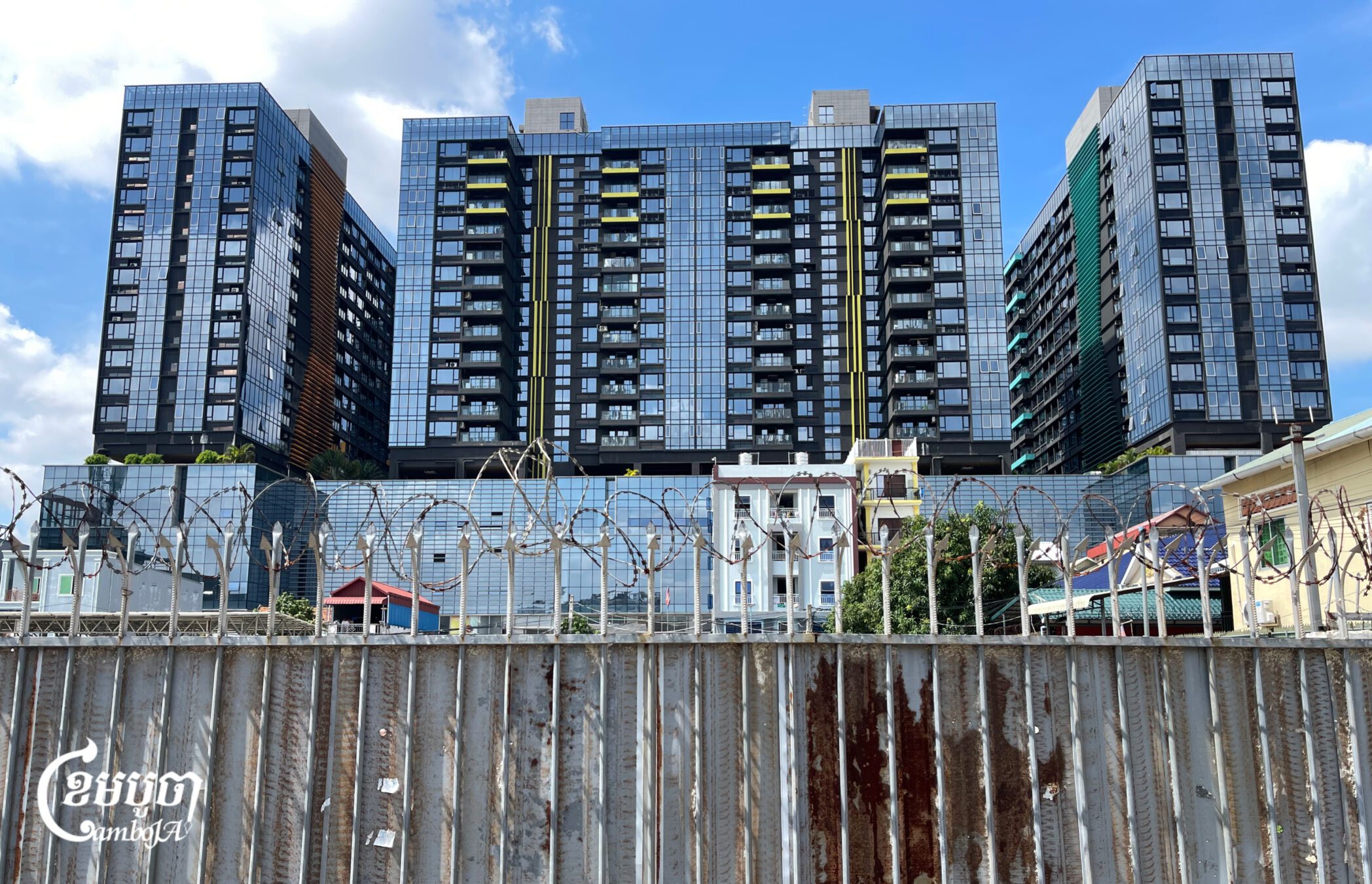
Last month, U.S. authorities sanctioned 10 other Cambodian targets, including casinos and suspected operators tied to scam hubs. Weeks later, the State Department’s annual trafficking report labeled Cambodia a “state sponsor” of human trafficking for the first time, alleging that senior officials and advisers have “financially benefited from forced labor” and criminality inside scam compounds across the country.
Hundreds of such compounds across Cambodia, many run by Chinese crime groups, are believed to have trafficked more than 150,000 people from dozens of countries into forced criminality, generating an estimated $12.5 billion to $19 billion in illicit revenue each year.
The illicit network also extends into Laos and Myanmar, with an estimated total of more than 300,000 people trafficked into forced criminality across the three countries.
Around the same time as the September sanctions, a bill was introduced in the U.S. Congress to create an anti-scam task force aimed at dismantling syndicates in Southeast Asia and expanding sanctions – including against Hun To, a cousin of Cambodia’s prime minister.
Hun To is a major shareholder in Huione Group, which the U.S. finalized cutting off from its financial system alongside Prince Group after the company was previously identified as a high-risk money-laundering entity. One Huione subsidiary was described by a crypto compliance group as the largest illicit online marketplace ever.
The Prince conglomerate, with business interests spanning real estate, banking, tourism and other sectors, has long been linked to criminal activity by journalists and investigators – some of whom have welcomed the latest sanctions as confirmation of their reporting.
“It has taken years of relentless work by researchers, journalists, activists and those who cannot be named to show that this group is not a corporate entity with questionable business practices, but a global criminal network,” said Nathan Paul Southern, operations director at the Eye Witness Project, an international consultancy investigating conflict, crime and corruption.
Prince Group Chief Communications Officer Gabriel Tan did not immediately respond to an email, and a separate message sent to a domain listed on the company’s website bounced back.
Cambodian government spokesperson Pen Bona declined to comment, and Chou Bun Eng, vice president of Cambodia’s National Committee for Counter-Trafficking in Persons, did not immediately respond.
An email to a spokesperson for the U.S. Embassy in Phnom Penh was returned, citing the current government shutdown as a factor.
With Prince Group now labeled a major international crime group by the U.S. and Britain, Sims said he is preparing for attempts to skirt sanctions – similar to those observed after other Cambodian tycoons and companies were blacklisted, including Ly Yong Phat last year.
“Expect a playbook that is far more sophisticated and sprawling than what we saw with Ly Yong Phat,” Sims said.
He described tactics such as quickly renaming companies, installing figurehead directors, and using complex corporate structures in foreign jurisdictions to hide ownership. Assets may be shifted to relatives or trusted associates, while real estate and insurance vehicles are used to obscure illicit proceeds.
Sims also warned of an intensified push into cryptocurrency and trade-based money laundering to keep funds moving. Because Prince is larger and more public, he added, the group could also use litigation and public relations as tools while quietly re-establishing operations through lesser-known subsidiaries.


